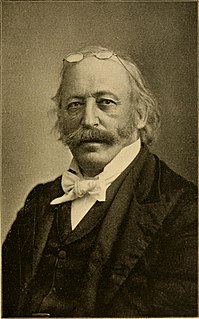A Quote by Martin Luther
He who is well acquainted with the text of scripture, is a distinguished theologian. For a Bible passage or text is of more value than the comments of four authors.
Quote Topics
Related Quotes
With Orff it is text, text, text - the music always subordinate. Not so with me. In 'Magnificat,' the text is important, but in some places I'm writing just music and not caring about text. Sometimes I'm using extremely complicated polyphony where the text is completely buried. So no, I am not another Orff, and I'm not primitive.
The discourse on the Text should itself be nothing other than text, research, textual activity, since the Text is that social space which leaves no language safe, outside, nor any subject of the enunciation in position as judge, master, analyst, confessor, decoder. The theory of the Text can coincide only with a practice of writing.
Logically, taking Scripture seriously means being passionately concerned about interpreting it correctly and thus welcoming any evidence that exposes erroneous understandings of the biblical text. Unfortunately, many zealous Bible students and teachers confuse their favorite interpretations of the Bible with the Bible itself.
[My approach to the Bible, history does really matter.] Everything matters. But I have priorities. For instance, for me to know whether there were two Isaiahs or one is less important than the text itself. Of course I read the arguments for and against. But it's not my task in life to say there were two or three authors of Isaiah's book, or how many authors there were of Deuteronomy. This is not what I'm doing.
The other day I got a text from a boy, but it wasn't hot. I mean, if you're going to text me every day, you haven't seen me for months and you're trying to seduce me, you'd better spice up that text and make it more exciting than 'How was your day? I hope you're having a beautiful one.' Sadly, I haven't been doing a lot of kissing lately.
When we turn the Bible into an adjective and stick it in front of another loaded word, we tend to ignore or downplay the parts of the Bible that don’t quite fit our preferences and presuppositions. In an attempt to simplify, we force the Bible’s cacophony of voices into a single tone and turn a complicated, beautiful, and diverse holy text into a list of bullet points we can put in a manifesto or creed. More often than not, we end up more committed to what we want the Bible to say than what it actually says.








































